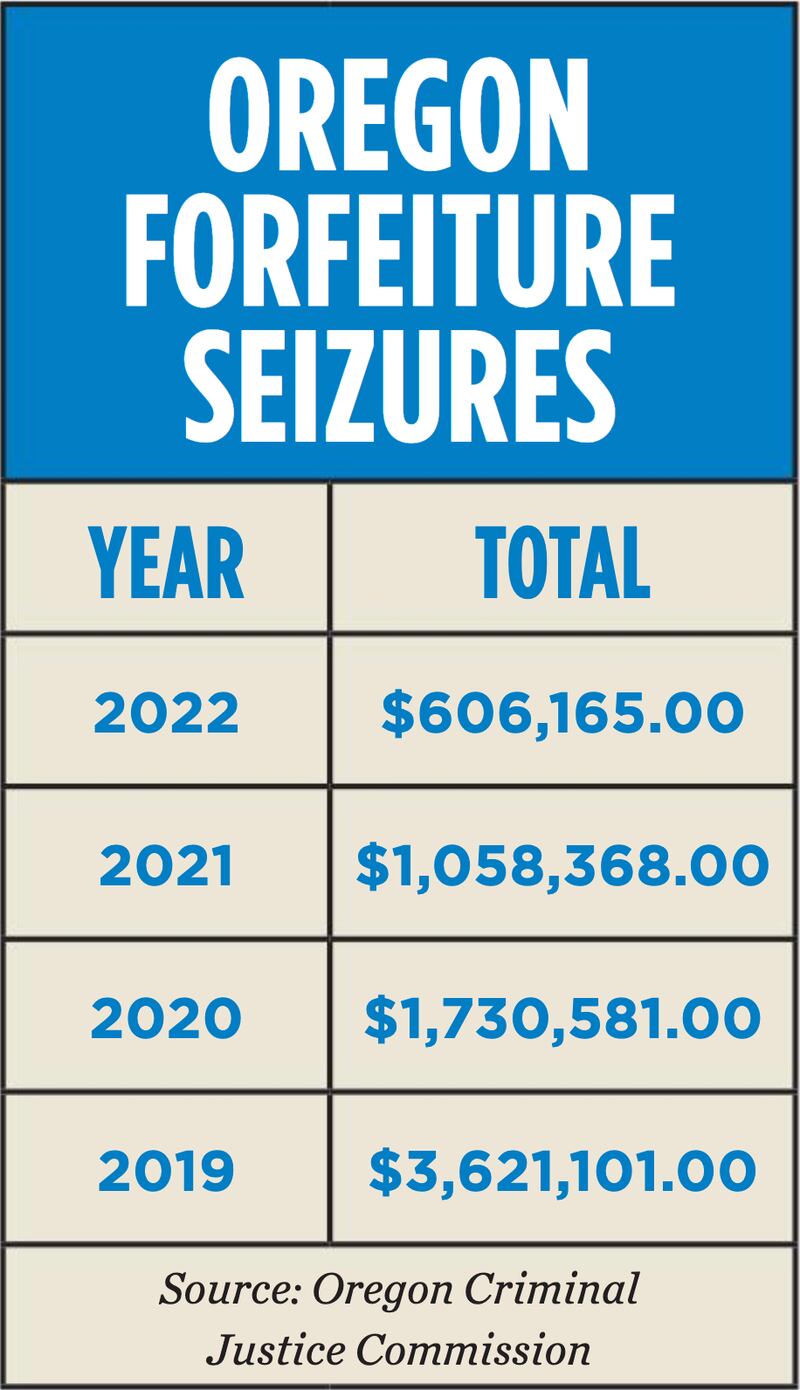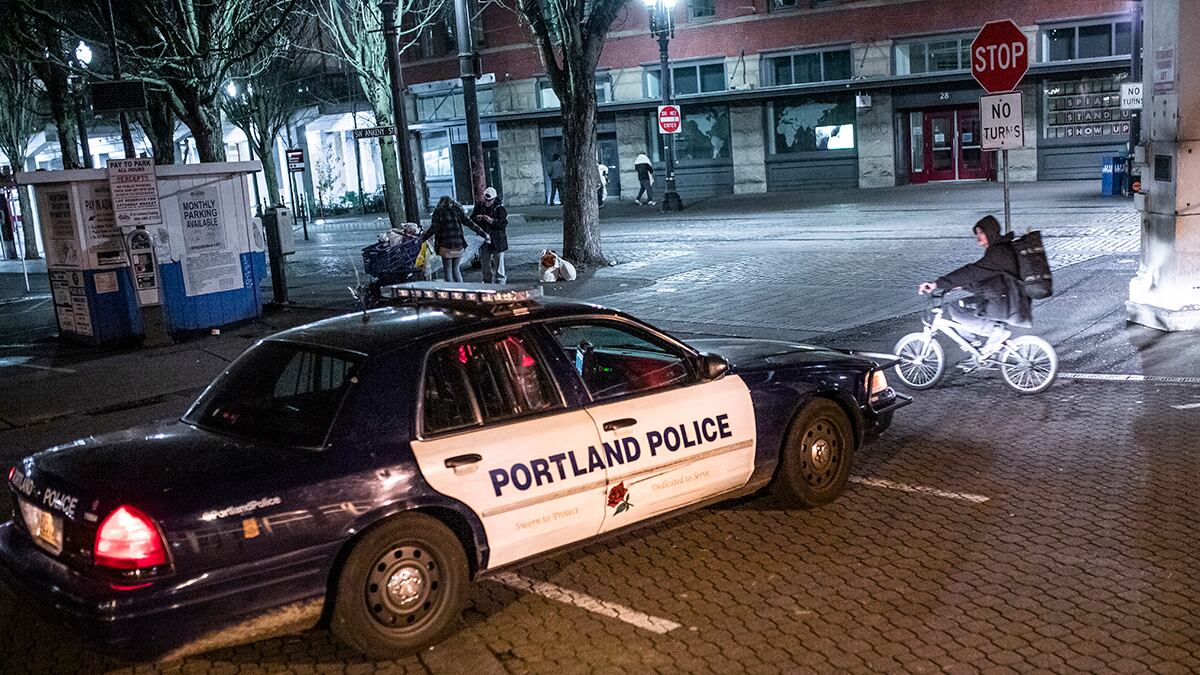Under Oregon law, cops may not only seize contraband and proceeds from a drug bust—but also the vehicle or real estate used to commit the crime.
The idea of civil forfeiture is to discourage drug trafficking and funnel profit from the illegal commerce into more worthy causes. Around half goes back to law enforcement agencies and the rest is used to fund college tuition for cops’ kids, diversion courts, and early childhood education. But critics have long lamented the practice. The American Civil Liberties Union accuses police of “making seizures motivated by profit rather than crime-fighting.”
The money adds up. In 2019, seizures brought in nearly $4 million in Oregon. But it’s been dwindling since. By last year, it had fallen to $600,000, although that number may rise as law enforcement agencies submit updated data to the state.
Portland is no exception to the trend. In 2019, the Portland Police Bureau seized assets in 74 cases. Last year, the count was four.
And it’s not just COVID to blame, says the state Asset Forfeiture Oversight Advisory Committee, which publishes annual statistics highlighting the scope of the practice. Its 2022 report noting the drop came out in April, and pinned it partly on “various case law and statutory changes.”
Research director Kelly Officer of the Oregon Criminal Justice Commission notes another possible cause: “We’ve seen a drop in drug crime prison intake cases starting with the onset of COVID.”
The committee has explicitly cited two case law changes in its recent annual reports. One is a 2019 decision by the Oregon Supreme Court, which ruled that a Beaverton police officer broke the rules by asking a driver during a traffic stop if he was carrying drugs.
A second was a 2019 decision by the U.S. Supreme Court noting that large forfeitures could be in violation of the Eighth Amendment to the Constitution, which prohibits “excessive fines” imposed as criminal punishment.
“Forfeitures in Oregon that are disproportionate or excessive run the risk of being declared unconstitutional,” the committee noted in 2020.

